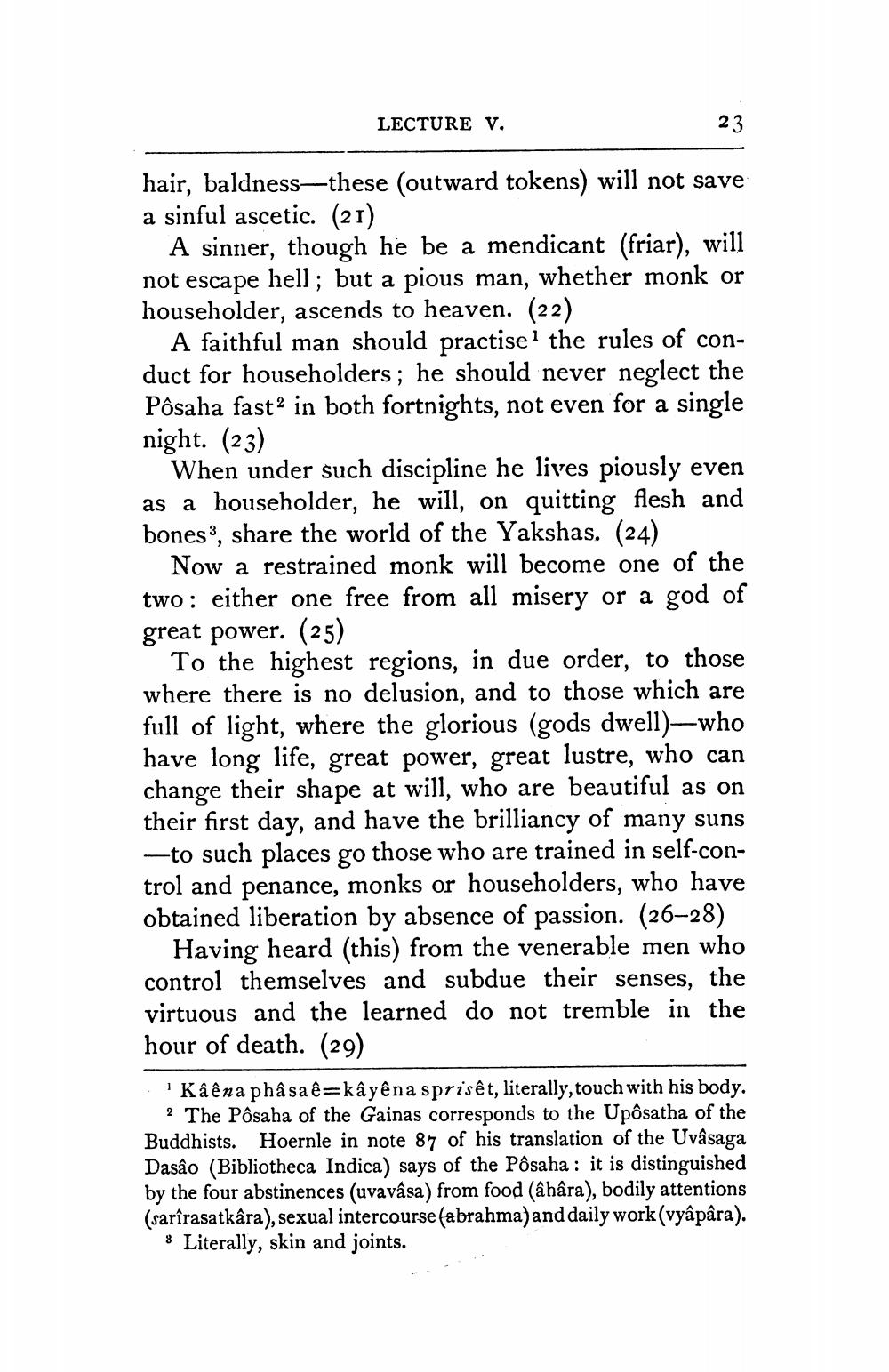________________
LECTURE v.
23
hair, baldness—these (outward tokens) will not save a sinful ascetic. (21)
A sinner, though he be a mendicant (friar), will not escape hell; but a pious man, whether monk or householder, ascends to heaven. (22)
A faithful man should practise the rules of conduct for householders; he should never neglect the Pôsaha fast? in both fortnights, not even for a single night. (23)
When under such discipline he lives piously even as a householder, he will, on quitting flesh and bones?, share the world of the Yakshas. (24)
Now a restrained monk will become one of the two: either one free from all misery or a god of great power. (25)
To the highest regions, in due order, to those where there is no delusion, and to those which are full of light, where the glorious (gods dwell)—who have long life, great power, great lustre, who can change their shape at will, who are beautiful as on their first day, and have the brilliancy of many suns
—to such places go those who are trained in self-control and penance, monks or householders, who have obtained liberation by absence of passion. (26-28)
Having heard (this) from the venerable men who control themselves and subdue their senses, the virtuous and the learned do not tremble in the hour of death. (29)
Kâêna phâsaê=kâyêna spriset, literally, touch with his body. 2 The Pôsaha of the Gainas corresponds to the Upôsatha of the Buddhists. Hoernle in note 87 of his translation of the Uvâsaga Dasão (Bibliotheca Indica) says of the Pôsaha : it is distinguished by the four abstinences (uvavâsa) from food (âhâra), bodily attentions (sarîrasatkâra), sexual intercourse (abrahma)and daily work(vyâpâra).
8 Literally, skin and joints.




